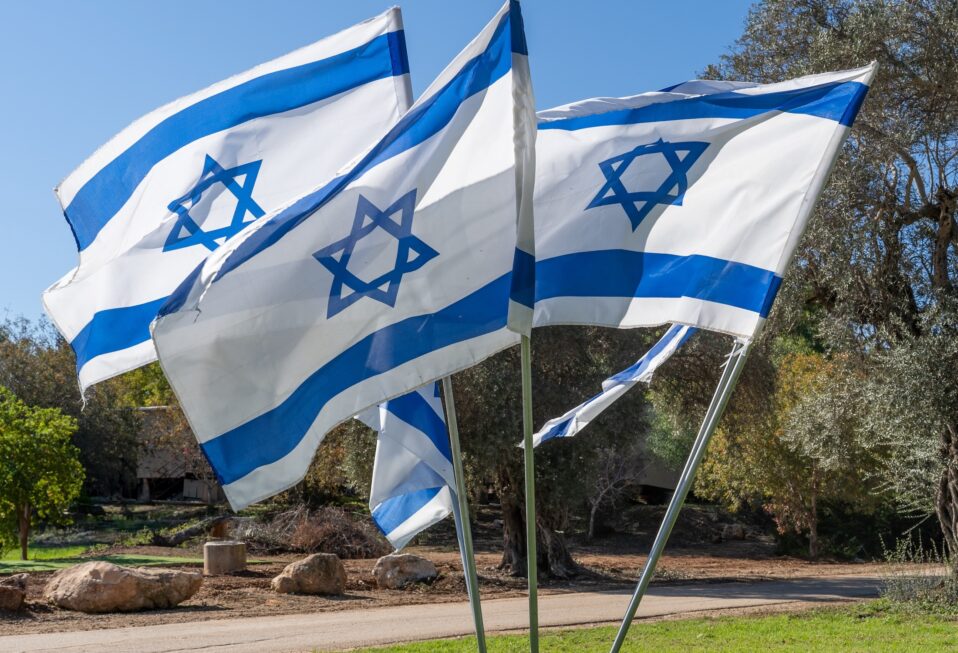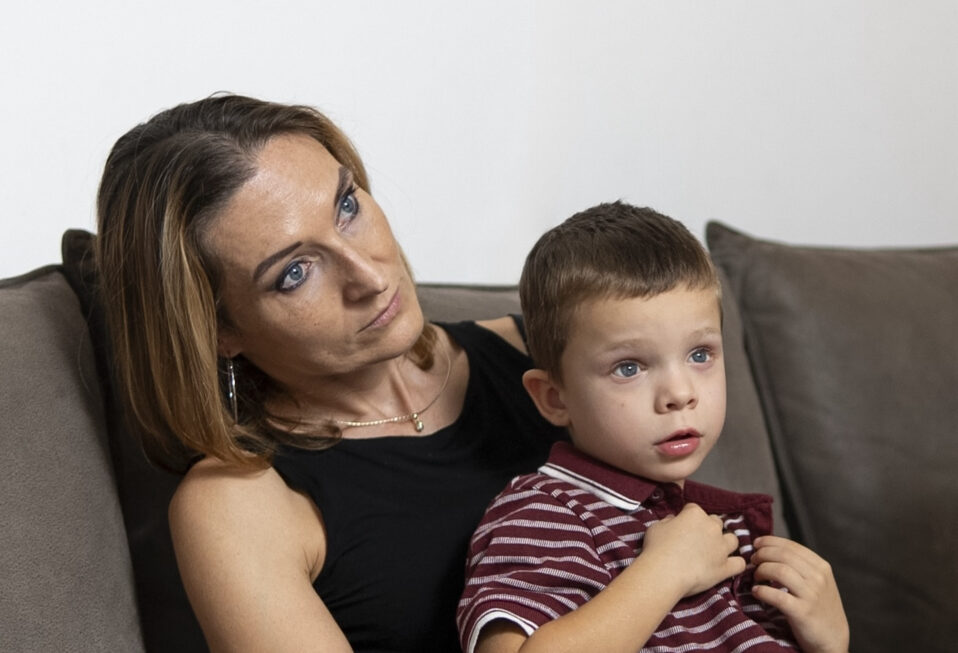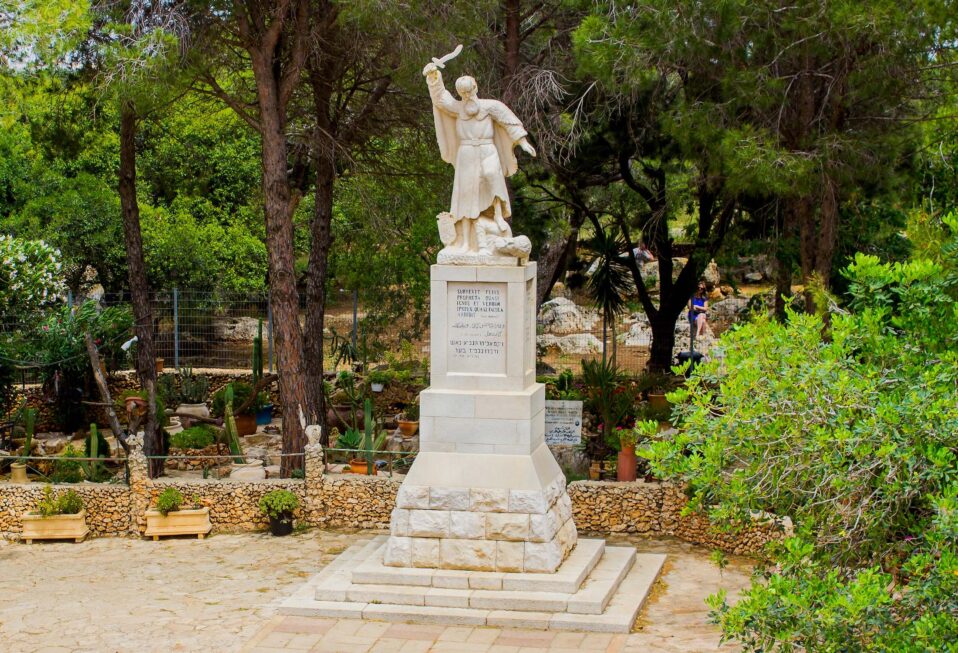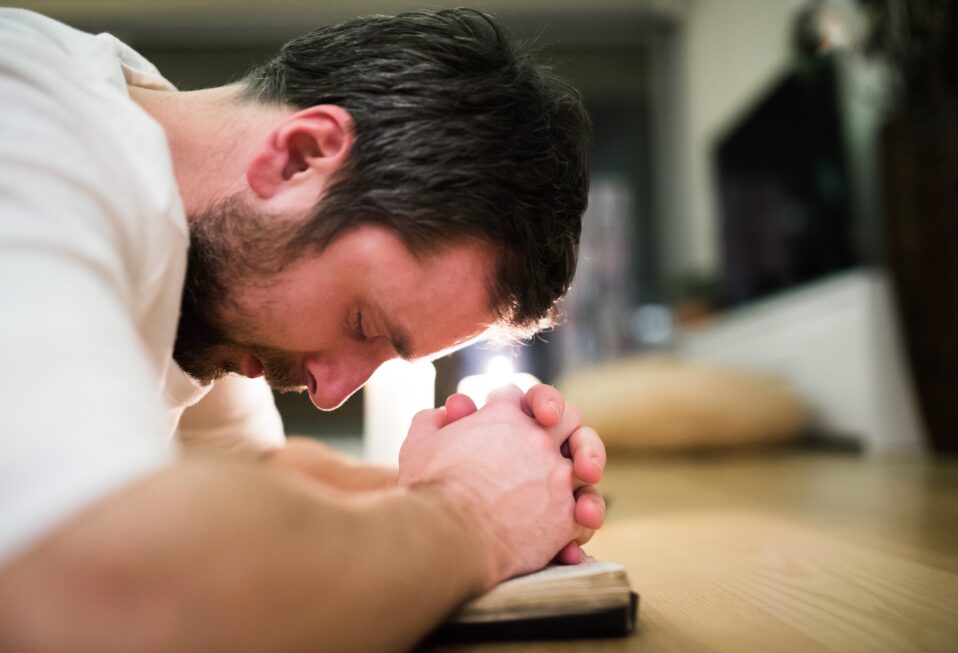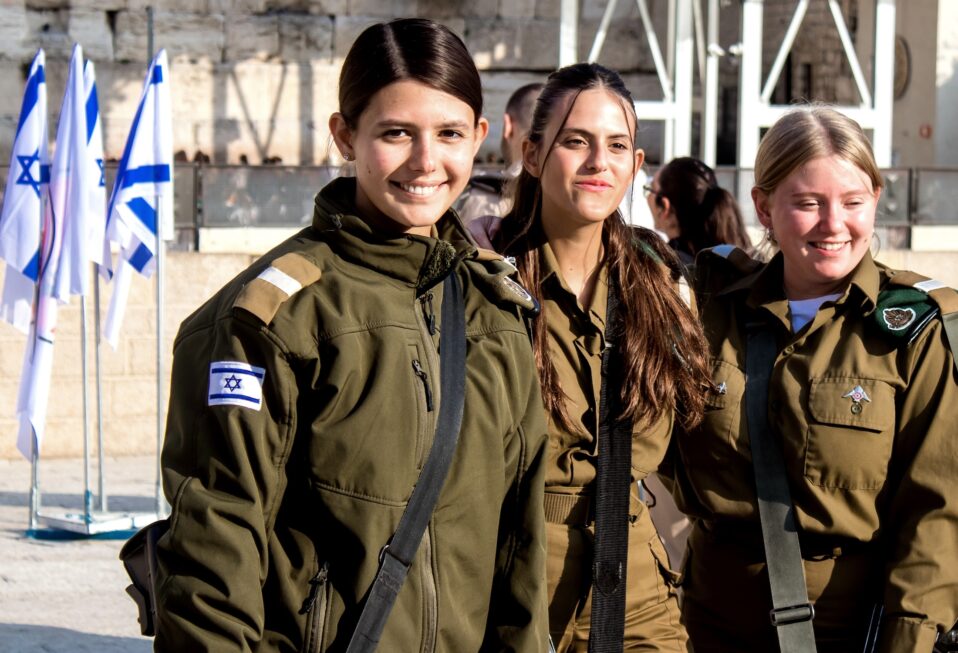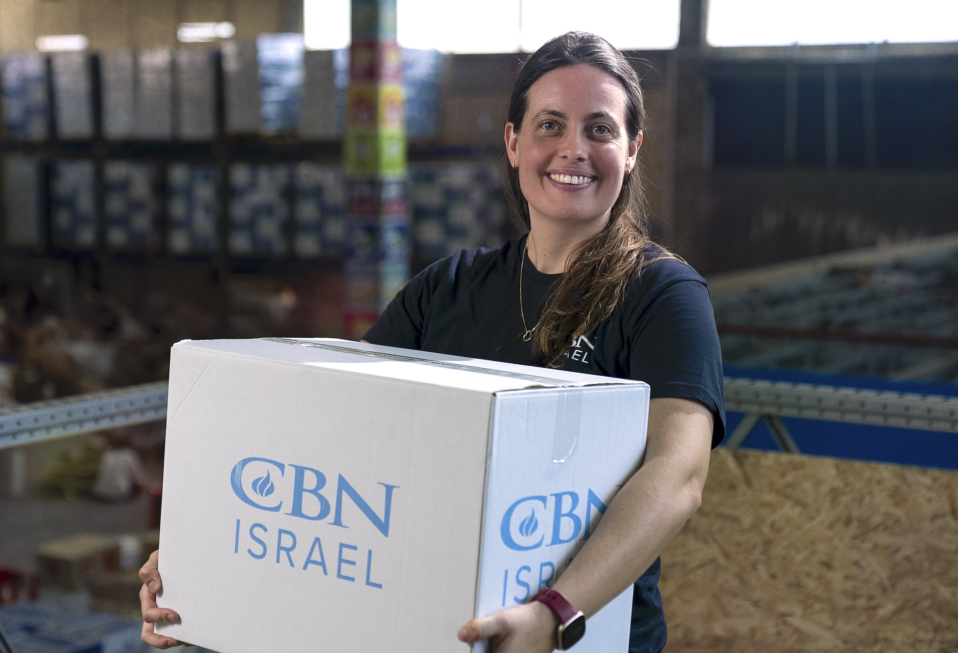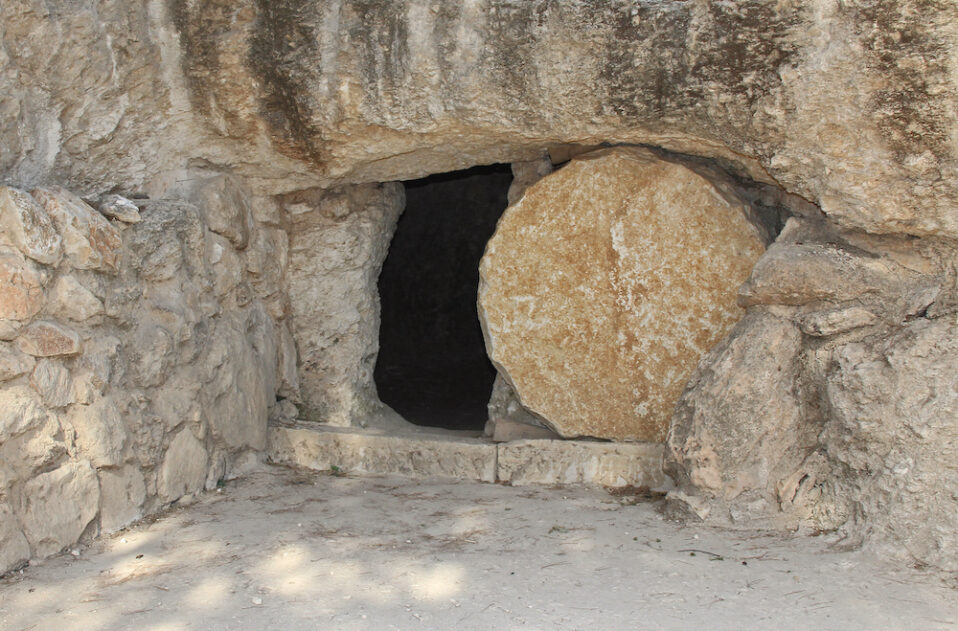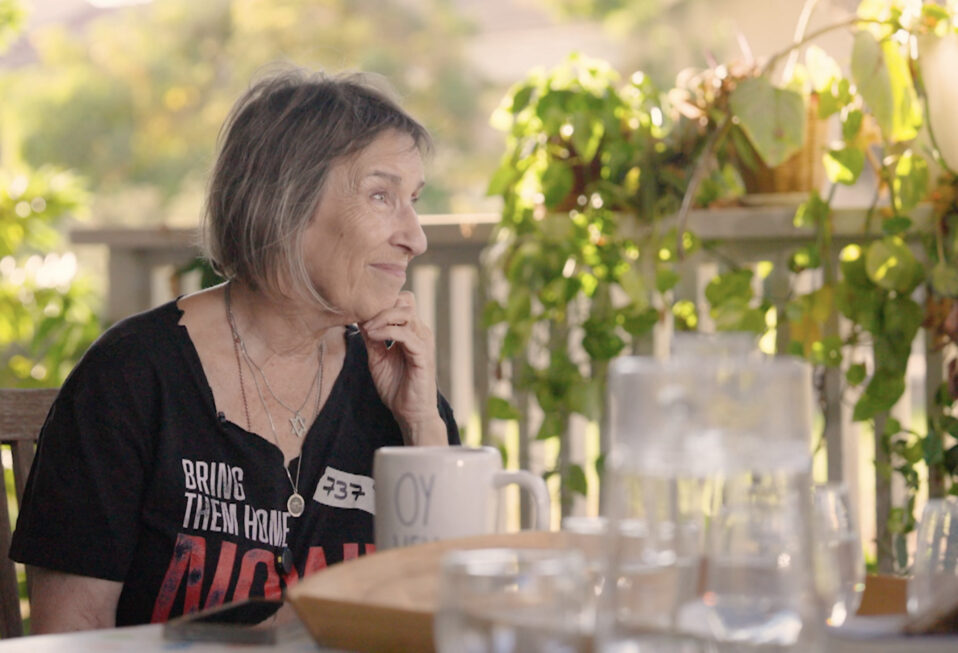By Arlene Bridges Samuels
In an era of top-heavy propaganda funded by billions in dark money, we celebrated in a room packed with Christian media during a press conference at last week’s National Religious Broadcasters (NRB) convention. The press conference, which emphasized the importance of ancient and modern Israel, was steered by three organizations that announced a resolution planned for this, the largest NRB convention to date, with its record-breaking 5,800 Christian media professionals.
Why did we celebrate? Because, after the decades-long debate about the sovereignty of the biblical heartland (i.e., Judea and Samaria), this new resolution represented both scriptural and historical truth. Leaders in International Christian Embassy Jerusalem (ICEJ), American Christian Leaders for Israel (ACLI), and the Israel Allies Foundation (IAF) each took part. IAF President Josh Reinstein, who moderated, announced a powerful petition: a resolution to President Donald J. Trump delivered on February 27.
The resolution, signed by more than 200 Christian leaders, includes approval from pastors, authors, media, and ministry influencers representing some 60 million American evangelicals. The resolution gained momentum in early February after President Trump welcomed Israeli Prime Minister Benjamin Netanyahu to the White House for a series of meetings between the two allies. In their discussions, President Trump indicated that he would make a statement in the coming weeks about Judea and Samaria, a region that is mostly described by the secular term West Bank.
Consider the history behind this moment. For decades, the topic of Judea and Samaria has bounced like a ping-pong ball between Jews, Arabs, European countries, Palestinians, the United Nations, and the United States. It has been a never-ending dispute about sovereignty. Simply put, Palestinians consider this region as their territory, calling it Palestine. The more than 500,000 Jews who populate the Israeli heartland consider it biblical Judea and Samaria, as outlined in Holy Scripture. The current signed document rests on the sacred, biblical deed God bequeathed to the Jewish people 3,000 years ago. This resolution not only affirms the inalienable rights of Jews to Judea and Samaria, it also emphasizes that the 200-plus signers “reject all efforts—both from the United States and the international community—to pressure the Jewish people to relinquish their ancestral homeland in Judea and Samaria.”
I am including the Resolution’s text to serve as an educational document to help all Evangelicals speak the facts about God’s geographic and intentional plans for His indigenous people, the Jews, to occupy the land God deeded to them through Abraham. God Himself declared Judea and Samaria as the Jews’ biblical heartland. His deed will not diminish nor be changed by any controversy.
Here is the text: “Reaffirming the Jewish People’s Right to the Biblical Heartland.”
- Whereas the Jewish people have an enduring historical and biblical connection to Judea and Samaria, also known as the Biblical Heartland;
- Whereas archaeological discoveries and physical evidence continuously reaffirm the Jewish people’s historic presence in this region;
- Whereas Judea and Samaria contain some of the most significant biblical sites, including Beit El, Hebron, Shiloh, Beit She’an, Bethlehem, Shechem, Jericho, and many others;
- Whereas key biblical figures such as Abraham, Isaac, Jacob, Joseph, King David, King Solomon, the prophets, and in the New Testament, Jesus and the apostles, lived, owned land, fought battles, taught, judged, and traveled extensively throughout Judea and Samaria, shaping the region’s character and history;
- Whereas despite modern propaganda claiming the contrary, Jesus was born a Jewish man in the Jewish city of Beit Lechem (Bethlehem), home of His ancestor King David, and traveled, preached, and ministered in the Roman occupied Jewish Jerusalem, Judea, and Samaria;
- Whereas, despite centuries of forced exile leading to the Jewish Diaspora, a continuous Jewish presence remained in the Land of Israel, including the Biblical Heartland;
- Whereas, even during 2,000 years of exile, the Jewish people maintained an unbroken connection to their heritage through language, religion, and culture and shared a collective yearning to return to the land; and
- Whereas the modern Jewish presence and sovereignty over Jerusalem, Judea, and Samaria has brought tangible blessings to the land, as foretold in Scripture, improving the standard of living, safeguarding religious freedoms and sites, preserving the region’s history, and enhancing the lives of all its inhabitants,
- Therefore, be it resolved that the undersigned signatories reaffirm the Jewish people’s inalienable right to the Biblical Heartland of Israel and reject all efforts—both from the United States and the international community—to pressure the Jewish people to relinquish their ancestral homeland in Judea and Samaria.
As a significant world history marker, this resolution is timely. Purim, the annual Feast of Esther, is celebrated next week on March 13 and 14. Two hundred American Christian Leaders for Israel (ACLI) are following in the footsteps of Jewish Queen Esther and her kinsman Mordecai appealing to King Ahasuerus (Xerxes) who ruled over a wide swath of 127 provinces stretching from India to Ethiopia. Esther’s appeal saved the lives of Jews across all provinces under Ahasuerus’ rule. In approving the resolution, President Trump, the leader of the free world, changes the conversation about Jewish history—recognizing the biblical principle that God established when He made Jews the permanent caretakers of His Holy Land.
Two observations from the press conference are worth remembering. First, Dr. Susan Michael, CEO of ICEJ US, noted, “The October 7 attacks in Israel served as a stark reminder of the failure of the two-state solution. It is not a solution. It is an illusion. Gaza was essentially a Palestinian state and look at what it produced.”
Second, ICEJ Senior Vice President David Parsons briefed us on the legalities of Israel’s claims with a reminder that the international community recognized Israel’s right to its biblical heartland at the 1917 Balfour Declaration, the 1920 San Remo Conference, and the 1922 League of Nations mandate. He clarified that, although some opponents call it an annexation of Judea and Samaria, “As a legal principle, you cannot annex something that you already own.”
In 2018, ACLI sent a resolution to President Trump to move the U.S. Embassy from Tel Aviv to Israel’s capital, Jerusalem. His signature guaranteed a successful move, although world leaders wrongly predicted chaos. While awaiting President Trump’s imprimatur on the validity of Judea and Samaria rightly under Israeli sovereignty, harsh disapproval, threats, and added violence will likely ensue. But the existential truth will be elevated, and God’s original blueprints will be honored.
Trump’s signature on the 2025 ACLI resolution would nevertheless be a biblically important moment for the United States of America. Awaiting his signing, let us recall Genesis 12:3, “I will bless those who bless you, and whoever curses you I will curse.” Prayers and repentance are necessary for curses to fade away due to past governmental decisions—and yes, that includes Christian betrayals or apathy against Israel, our spiritual homeland.
The press conference announcing the well-crafted resolution drew an outbreak of resounding applause and jubilation. Its significance is close to the hearts and minds of those of us in Christian media who will soldier on with renewed strength and hope!
Our CBN Israel team welcomes you to pray with us this week:
- Pray that the nations of the world will condemn antisemitism in all its toxic forms.
- Pray for Christians throughout the world to stand firm in their support of Israel.
- Pray for President Donald Trump, his administration, and the 119th U.S. Congress.
- Pray for Christian media like CBN to gain even more influence worldwide.
- Pray for the global mainstream media to report the unbiased truth about Israel and the Middle East.
Arlene Bridges Samuels is the weekly feature columnist for CBN Israel since 2020. Working on the staff of the American Israel Public Affairs Committee (AIPAC) as their SE Regional Outreach Director for nine years, International Christian Embassy Jerusalem USA engaged her as the Leadership Outreach Director part-time for their project American Christian Leaders for Israel. Arlene is an author at The Blogs-Times of Israel, is published at AllIsrael.com and The Jerusalem Connection, and has traveled to Israel since 1990. By invitation, she attends Israel’s Government Press Office Christian Media Summits as part of Christian media worldwide. In 2024, Arlene and her husband Paul co-authored Mental Health Meltdown: Illuminating the Voices of Bipolar and Other Mental Illnesses. www.TheMentalHealthMeltdown.com.


